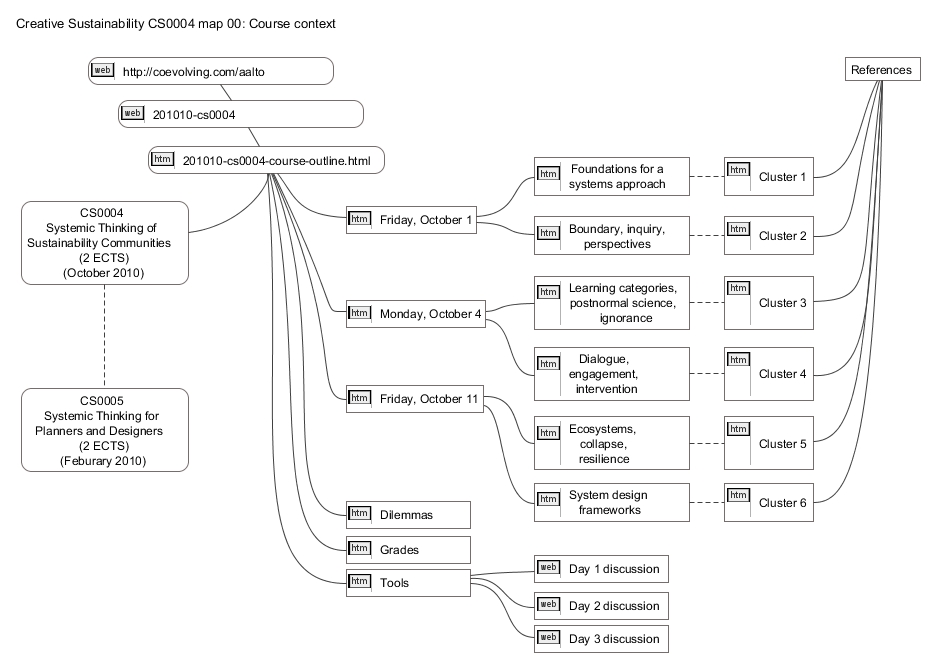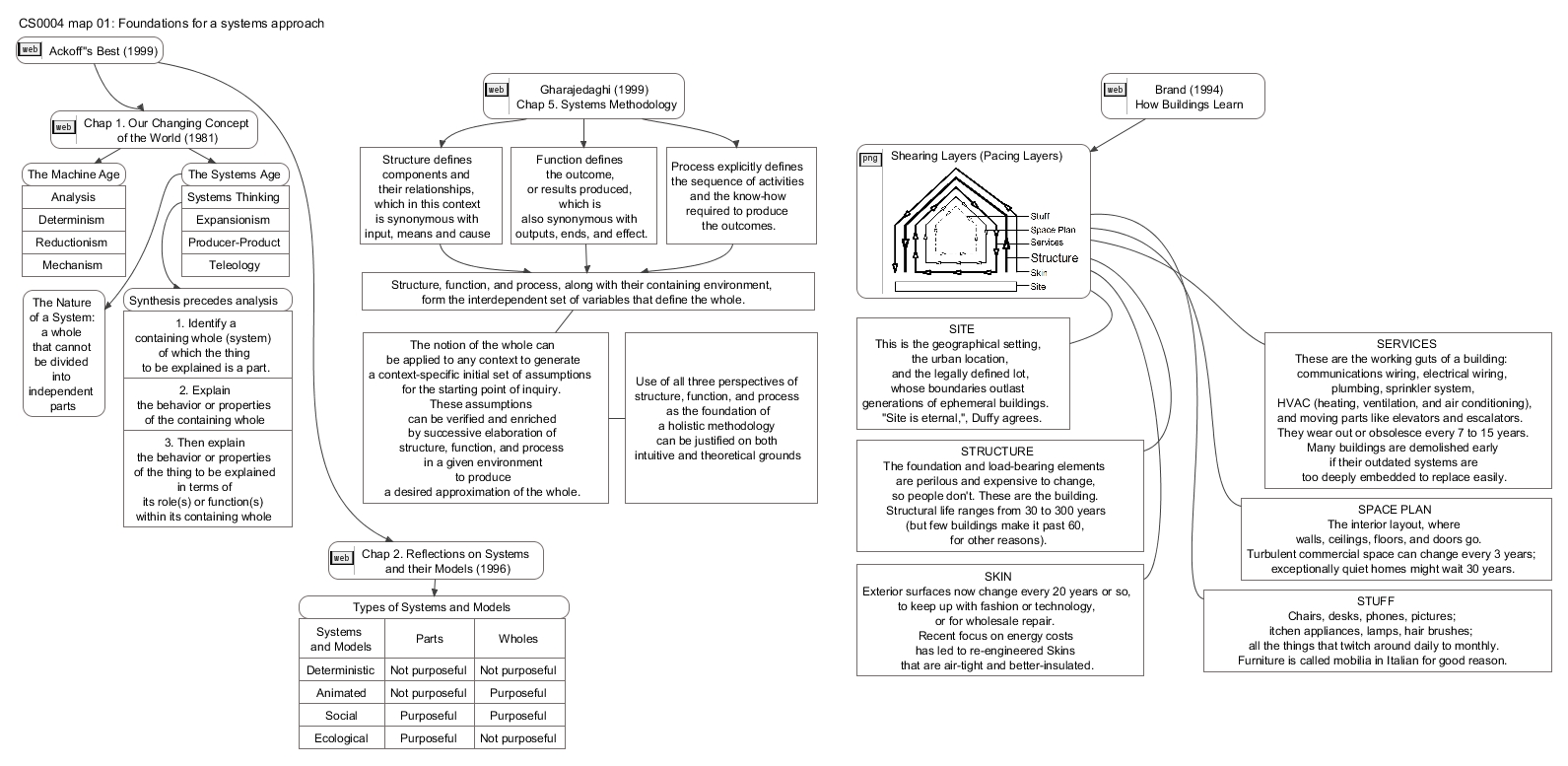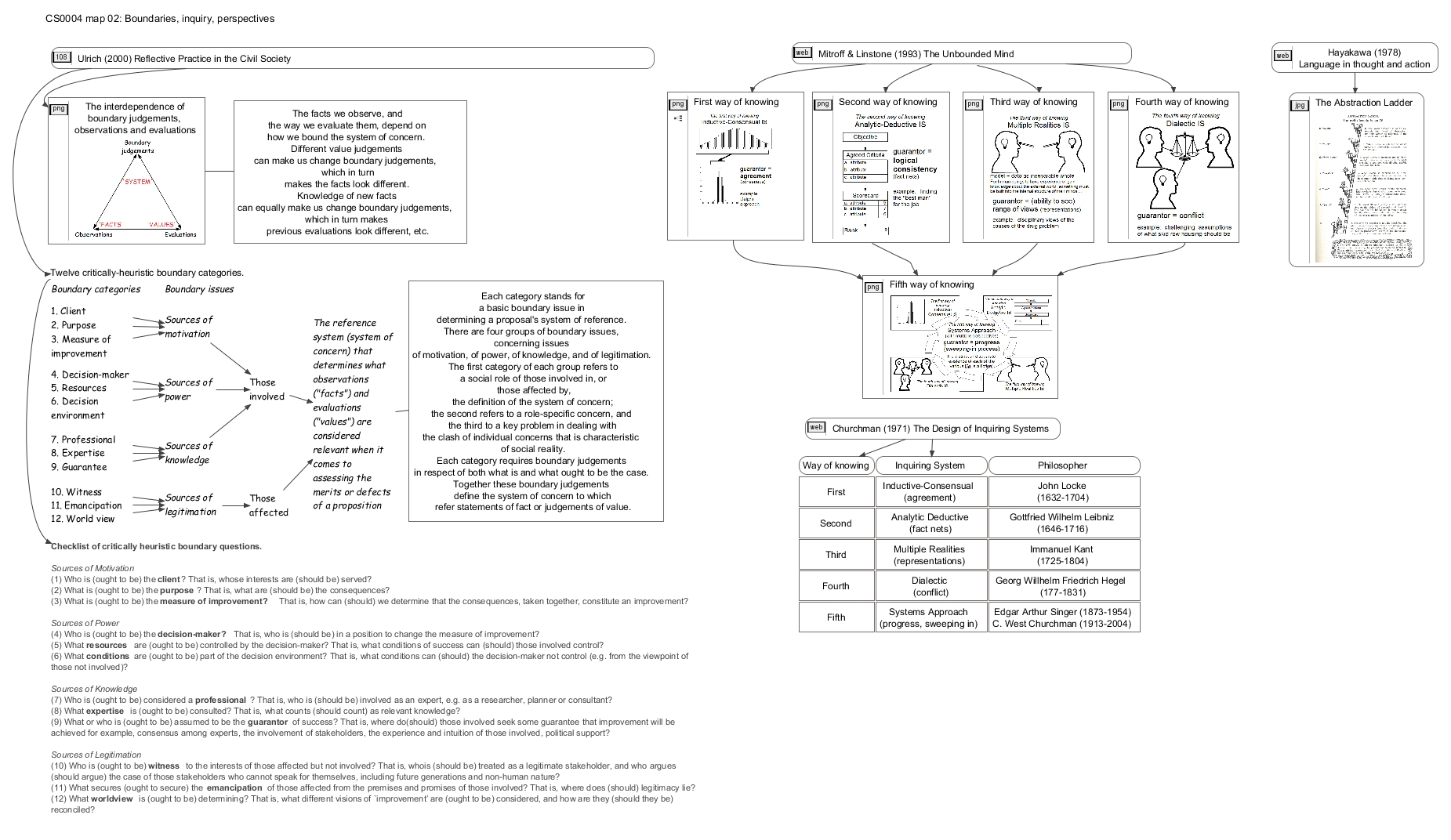In a return to original Systems Thinking Ontario format, we reviewed an (old) systems thinking paper from 1998. Mohammed Badrah served as reviewer. Kelly Okamura was the discussant. The author, David Hawk, was available during the discussion period for extended knowledge.
As compared to prior Systems Thinking Ontario sessions with the word “entropy” in the title, the discussion was not on the scientific interpretations of the second law of thermodynamics, but instead on behaviours of human beings related to their social environments.
This recording of the session is available on Youtube, as well as on the Internet Archive .
| Video | H.264 MP4 |
| September 11 (1h34m) |
[20230911_ST-ON SustainableTechEntropyArgument Badrah_Okamura_Hawk 1920×1030.m4v] (FHD 1920×1080 1162kbps 876MB) [on the Internet Archive] |
A standalone audio was also created during the meeting.
| Audio | |
| September 11 (1h34m) |
[20230911_ST-ON SustainableTechEntropyArgument Badrah_Okamura_Hawk.m4a] (87 MB) [on the Internet Archive] |
Here is the original abstract sent in advance.
— begin abstract —
Humans beings have significant problems in being human. The difficulties are manifest in many ways but generally begin with the way in which humans relate to their environment. The potentials for improvements in these relations are great but so too are the difficulties. This is in part because of serious shortcomings in how the resources essential to human existence are conceptualized and managed. These shortcomings are similar to those raised by General Systems Theorists fifty years ago. Noteworthy successes were limited, therefore the problems continue.… Read more (in a new tab)
In a return to original Systems Thinking Ontario format, we reviewed an (old) systems thinking paper from 1998. Mohammed Badrah served as reviewer. Kelly Okamura was the discussant. The author, David Hawk, was available during the discussion period for extended knowledge.
As compared to prior Systems Thinking Ontario sessions with the word “entropy” in the title, the discussion was not on the scientific interpretations of the second law of thermodynamics, but instead on behaviours of human beings related to their social environments.
This recording of the session is available on Youtube, as well as on the Internet Archive .
| Video | H.264 MP4 |
| September 11 (1h34m) |
[20230911_ST-ON SustainableTechEntropyArgument Badrah_Okamura_Hawk 1920×1030.m4v] (FHD 1920×1080 1162kbps 876MB) [on the Internet Archive] |
A standalone audio was also created during the meeting.
| Audio | |
| September 11 (1h34m) |
[20230911_ST-ON SustainableTechEntropyArgument Badrah_Okamura_Hawk.m4a] (87 MB) [on the Internet Archive] |
Here is the original abstract sent in advance.
— begin abstract —
Humans beings have significant problems in being human. The difficulties are manifest in many ways but generally begin with the way in which humans relate to their environment. The potentials for improvements in these relations are great but so too are the difficulties. This is in part because of serious shortcomings in how the resources essential to human existence are conceptualized and managed. These shortcomings are similar to those raised by General Systems Theorists fifty years ago. Noteworthy successes were limited, therefore the problems continue.… Read more (in a new tab)






